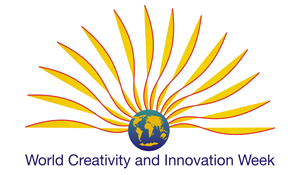Stanford Crash Course on Creativity – Creative Teams – Week 6
Working on teams is hard and worth it. Each person brings his/her own skills, experience, hopes and inspiration for a collective desired outcome. Finding out how each team member thinks, his or her style, is important and can help teams over hurdles to using creative thinking.
Personality style indicators help executive leadership teams innovate faster with success. The new decisions they need to make warrants them using creativity-thinking attitudes in environments that support diversity of thought, experience and perception. The Myers Briggs Type Indicator Instrument ®, Temperament, and FourSight are some we use. DISC, Herman Brain Dominance Indicator, Insights Discoveries are others. Each framework has its benefit.
Tina Seelig, Executive Director for the Stanford Technology Ventures Program and leader of this course says she uses Debono’s Six Thinking Hats. She shows how teams use a particular kind of ‘hat’ thinking AT THE SAME TIME, to minimize meeting derailment.
- White = point out logical, facts
- Green = generate new ideas
- Red = use intuition to make decisions
- Blue = be process-oriented, organized
- Black = say what won’t work; criticize
- Yellow = see only the positive; affirm
Imagine what that might feel like, to put aside your own usual hat to adopt a different kind of thinking or focus for a short period of time. What do you suppose might happen?
My Two Cents
Teams using a shared vocabulary and an agreed upon pathway for working through challenges give great results, regardless of the frame, with one proviso.
The selected framework must engage all the brainpower in the room – a diversity of styles instead of a one-size-fits all process. For example, the folks at Buffalo State’s International Center of Studies in Creativity articulate a number of thinking styles and affective orientations incumbent in the creative process overall. Wouldn’t it be great if all these skills were used each time a team uses a creative process. Imagine what that might do.
Education influences how teams solve problems
Tom Wujec’s fascinating Build a tower, build a team Ted Talk is a suggested resource for this week’s Crash Course on Creativity class. It shows the influence of education and approach on solving challenges. Definitely worth the 6 minutes to watch. Enjoy. You’ll be reminded of the Robert Fulghum 1988 book: All I Really Need to Know I Learned in Kindergarten. Brilliant.
Marci Segal, MS Creativity and Change Leadership – Freeing leaders’ thinking so they can create new futures.
Related articles


Great post and right to the point. I am not sure if this is truly the best place to ask but do you folks have any ideea where to get some professional writers? Thanks in advance
[...] Stanford Crash Course on Creativity – Creative Teams – Week 6 (creativityland.ca) Share this:PrintLinkedInTwitterFacebookLike this:LikeBe the first to like this. This entry was posted in Creativity, Presentation Design and tagged Creativity on December 9, 2012 by Margaret. [...]